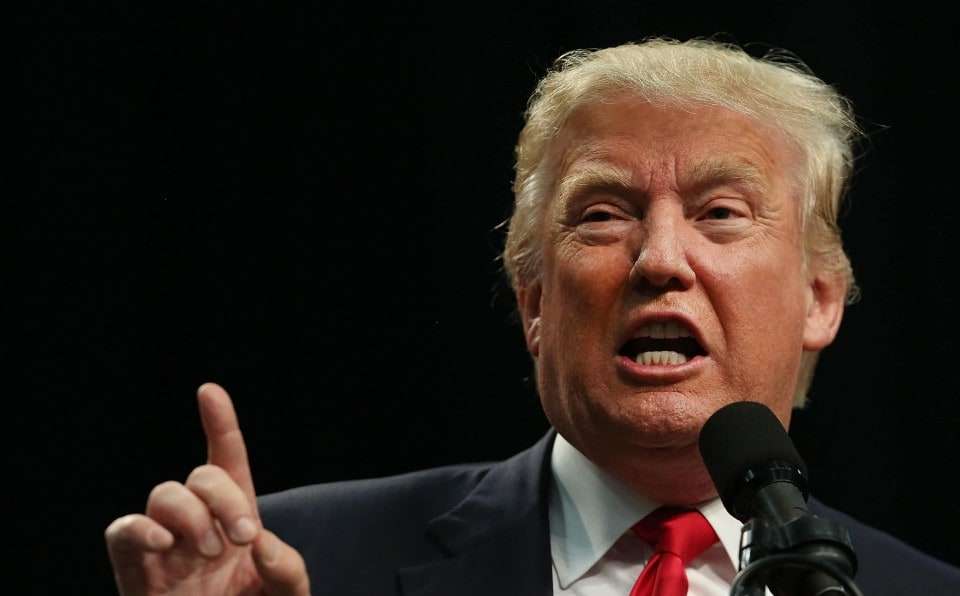The Volokh Conspiracy
Mostly law professors | Sometimes contrarian | Often libertarian | Always independent
The conservative divide on Trump and the "how bad could it get" question

I've been following the reaction of policy-wonk conservatives, including many lawyers, to the likely nomination of Donald Trump as the Republican Party's presidential candidate in the November election. By policy-wonk conservatives, I mean people such as the members of the Federalist Society; Republican staffers, past, current and future; employees of conservative and libertarian think tanks; and those who follow their work. Among this crowd, it seems that very few are actually in favor of Trump. But there's a sharp divide in terms of how much to be against him. Some plan to hold their noses and vote for Trump despite finding him very problematic. Others, who often go by the "NeverTrump" moniker, plan to not vote, to vote third-party or to vote for Hillary Clinton.
http://www.washingtonpost.com/video/politics/5-republicans-who-have-changed-their-minds-about-trump/2016/05/27/bba2d458-244a-11e6-b944-52f7b1793dae_video.html
The difference between the two groups seems to depend a lot on their answer to what I call the "how bad could it get" question. In this post, I want to summarize the two perspectives as best I can. Time permitting, in future posts I'll get into more detail about how each side views the other. (Oh, I realize that some may not be interested in what policy-wonk conservatives think. That's great, of course, but this post and any follow-ups aren't for them.)
To a lot of policy-wonk conservatives, whether to vote for Trump raises a choice among bad options. To pick among these options, they imagine their worst nightmare for the country and plan to vote in the way most likely to prevent it. The key difference, I think, is that the two groups have different ideas of what the worst future of the country might be.
Conservatives who plan to hold their noses and vote for Trump generally see the future in terms of the traditional divide between the left and right of American politics. From their perspective, the worst scenario for the United States would be the enactment of the Democratic Party's agenda. They tend to see Trump as preferable to Clinton because of a simple question of probability. Clinton is definitely going to try to enact the Democratic Party's agenda, they reason, while Trump is a wild card. Trump offers at least a chance that he would govern as a conservative. Trump may be erratic and unpredictable, but that might work in a conservative direction. And because Trump doesn't have strong views on a lot of big governance questions, he may be open to conservative influence on issues that conservatives care about (such as judicial nominations).
For an example of this thinking, consider a recent column by Dennis Prager. Prager's column explains why he is supporting Trump and why his NeverTrump friends are wrong. Prager runs through a list of standard left-right political issues that could be lost if Clinton is elected, ranging from the level of corporate income tax and rules on fracking to the repeal of Obamacare and the direction of the Supreme Court. To Prager, losing on these issues is the ultimate nightmare. He writes:
For these reasons, I, unlike my [NeverTrump] friends, could not live with my conscience if I voted to help the America-destroying left win the presidency in any way. I just don't understand how anyone who understands the threat the left and the Democrats pose on America will refuse to vote for the only person who can stop them.
House Speaker Paul D. Ryan's recent op-ed on Trump strikes a less apocalyptic note but echoes the same theme. After articulating his congressional agenda, Ryan writes:
One person who we know won't support it is Hillary Clinton. A Clinton White House would mean four more years of liberal cronyism and a government more out for itself than the people it serves. Quite simply, she represents all that our agenda aims to fix.
In the NeverTrump group - of which I am a member - the perspective is very different. To the NeverTrump conservatives, the answer to "how bad could things get" is "a lot worse than that."
From that perspective, Trump is thought to raise a threat vastly greater than the usual left-right politics. Trump is a con man and a charlatan who sees constitutional rights and the rule of law as only for the weak and the "politically correct." He glorifies mob violence. He lies about everything and castigates everyone who points it out. Trump's reaction to watching the massacre of peaceful pro-democracy protesters in Tiananmen Square by the Communist Chinese government tells you what you need to know. The universal reaction in the Western world was to condemn the massacre. But Trump was on the other side. He applauded the "vicious" and "horrible" way the government showed "strength" when it "put down" the protesters.
From this perspective, whether to vote for Trump isn't a question of left versus right. The choice is instead between the traditional parameters of the American constitutional tradition and something far more sinister. Trump threatens to destabilize longstanding assumptions of societal stability and the rule of law that have in the past made the basic left-right debate in American politics possible.
As best I can tell, those are the two perspectives. Time permitting, my next post will cover why each side rejects the views of the other side as simple fear-mongering that completely lacks judgment.


Show Comments (0)